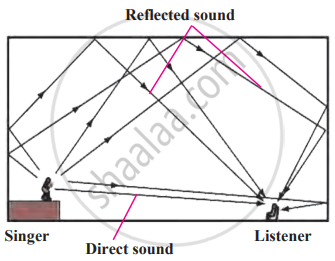Reverberation is the persistence of sound in a closed space due to repeated reflections from surfaces like walls, ceilings, and floors. When sound waves reflect multiple times, the time between successive reflections becomes very short, causing the sounds to overlap and blend together. This results in a continuous, prolonged sound that can increase loudness but reduce clarity. Reverberation is commonly observed in empty rooms or auditoriums and can affect the quality of sound perception in such spaces. Proper acoustic treatment is essential to manage reverberation for better sound clarity.

Reverberation
A Comparison:
Case 1: Talking in an Empty, Closed House
- When you and your friends chat in an empty, closed house, the sound waves from your voices reflect off the hard surfaces of the walls, roof, and floor multiple times.
- These reflections cause the sound to linger, making it seem like your voice echoes slightly and mixes with itself, leading to unclear speech.
Case 2: Playing Loud Music in the Same Space
- When the music system is played loudly in the same closed house, the sound waves reflect more frequently and intensely due to the increased volume.
- The time between successive reflections becomes so small that the reflected sounds overlap and combine into a continuous, loud, and unclear sound.

